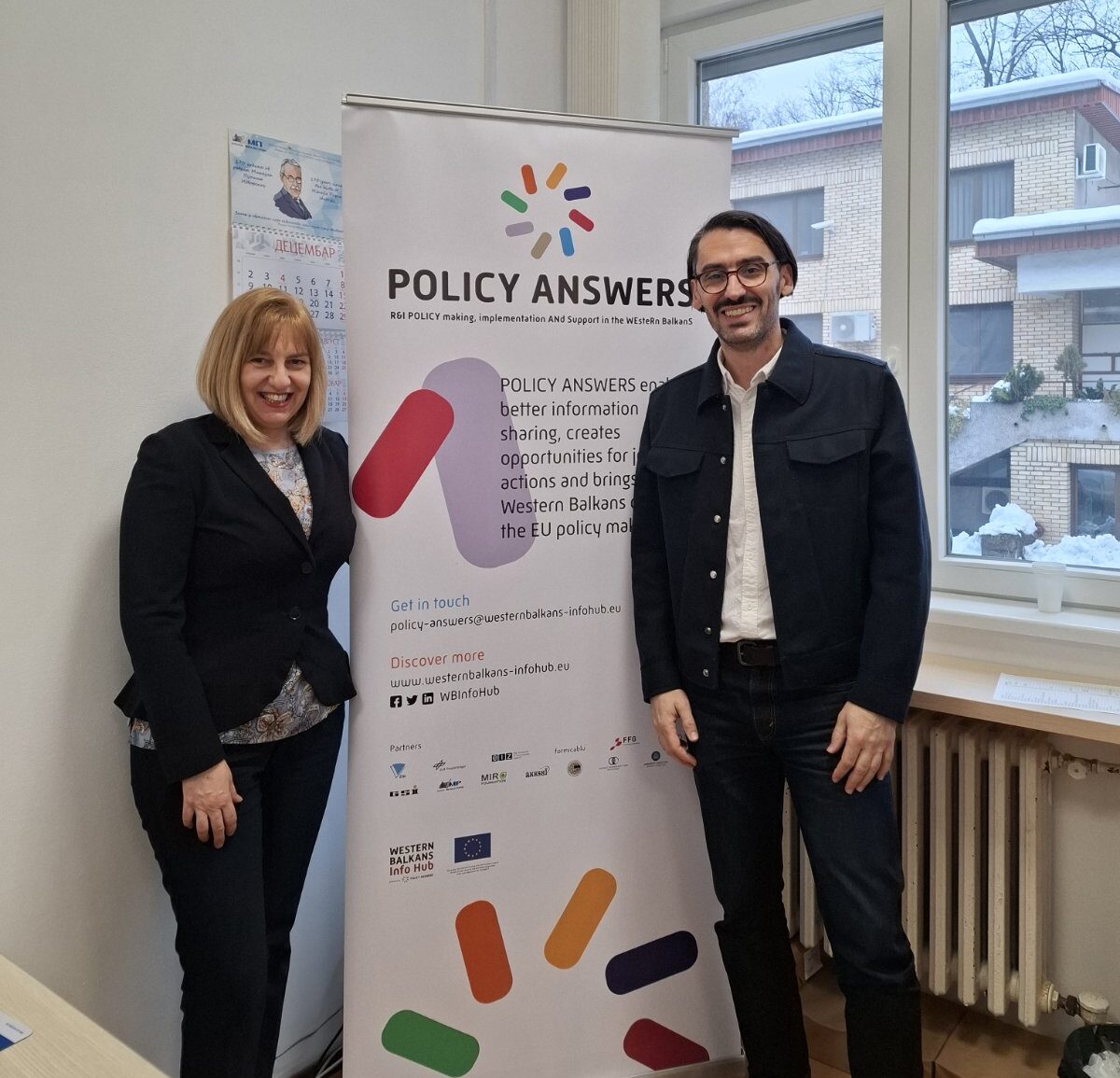As part of the POLICY ANSWERS fellowship programme, Dragan Dragomirović from the University of Banja Luka (UNIBL) spent time at the Institute Mihajlo Pupin in Serbia, mentored by Sanja Popović Pantić. His fellowship focused on analysing and comparing the research and innovation (R&I) ecosystems of Serbia and the Republic of Srpska (RS), with the aim of identifying practical lessons and models that could help RS accelerate its R&I development.
Serbia has made notable progress in research infrastructure, institutional capacity, and innovation funding, with over 459 R&D organisations, multiple Science and Technology Parks, and advanced digital platforms like eNauka and eInovacije. In contrast, the Republic of Srpska still faces considerable gaps: limited research funding, outdated infrastructure, and a lack of strategic direction in innovation policy.
During the fellowship, Dragan explored key drivers of Serbia’s success, including:
- A dedicated Ministry for science and innovation,
- Smart Specialisation Strategy (S3),
- Competitive grant mechanisms via the Science Fund and Innovation Fund,
- And robust IP legislation supporting researchers and commercialisation.
He also highlighted emerging opportunities in RS, such as the establishment of the Science and Technology Park in Banja Luka and growing interest in fostering cross-border partnerships. However, without a clear R&I strategy, dedicated innovation funding, and institutional reforms, RS risks falling further behind.
The fellowship concluded with concrete policy recommendations, including:
- Prioritising the adoption of a Smart Specialisation Strategy;
- Allocating at least 1% of the entity’s budget to competitive research grants;
- Strengthening IP frameworks modelled on Serbia’s example;
- And developing independent research institutes and digital research systems.
A full report about the fellowship can be found below:

